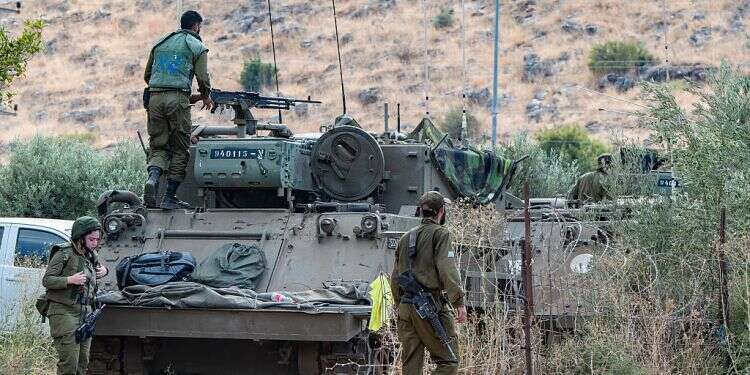Amid a series of offensive movies recently taken by Iran, there is one significant step with which many in Israel are unfamiliar. Last Saturday, Iran's Foreign Ministry announced that any action taken by Iran's "judicial and security apparatuses against the FDD and their Iranian and non-Iranian accomplices will be considered legitimate."
Few in Israel are familiar with the Foundation for the Defense of Democracies, or the brilliant analyst at its head, Mark Dubowitz. But in Washington, Dubowitz is one of the most eloquent speakers against the crimes of the Iranian regime and is counted among the senior officials warning against the havoc Tehran threatens to sow around the world. Now, the Iranians have placed Dubowitz and his associates, among them quite a few Iranians in exile, in their crosshairs.
Follow Israel Hayom on Facebook and Twitter
In a phone call with Israel Hayom from the United States, Dubowitz said he is taking Iran's announcement it plans to pursue them "very seriously." His organization is in contact with the FBI, he said, and the US defense establishment. "They gave the green light to take me out," he said.
Many in the US have come out in Dubowitz's defense, among them former US Ambassador to the UN Nikki Haley, who wrote that the threats against FDD were "another sign of how desperate the Iranian leaders are that they would threaten to harm American scholars."
To be clear, Dubowitz and his associates have not been deterred by the threats, which he says have only bolstered the think-tank's efforts to "expose the truth about the acts of the Iranian regime."
At the same time, Dubowitz is concerned the US administration could change direction and soften its policy on Tehran.
US President Donald Trump, who withdrew from the Iran nuclear deal and imposed economic sanctions on Iran, expected the immense pressure to force the Iranians to return to the negotiating table, only this time with their head bowed. But the Iranians for their part have yet to break, let alone hold talks.
Trump's remarks at the recent G7 Summit in France, during which he was "looking to make Iran rich again," alongside his stated intention of meeting with its President Hassan Rouhani, had many people, Dubowitz among them, fearing Trump was changing his tune on the ayatollah regime.
Dubowitz notes that the US president has repeatedly said he would like to meet with Rouhani. He notes that details of France's plans to ease tensions between Tehran and Washington are unknown and that the Europeans are also trying to come up with a framework that would see the US ease up on sanctions in return for the Iranians agreeing to meet.
According to Dubowitz, Trump must not ease up on sanctions, because he says they are the reason Iran halted its nuclear program and slowed down progress on its missile program in the past. Dubowitz worries that, should Trump take the pressure off Iran and go back to the negotiating table, he could cut the kind of terrible deal with Tehran that his predecessor, Barack Obama, cut with the ayatollah regime in 2015, and that this would put both the US and Israel at risk.
Asked how he responds to claims he is only looking to drag the US into a war with Iran, Dubowitz says, "We do not want a war," that it is the FDD's belief that the US can make use of additional tools at its disposal. "As a matter of fact, in order to lessen the chance of war, the US must bolster deterrence and respond to Iran's threats to US citizens and interests. We cannot just rely on Israel to bear this burden alone."
'Iran's economy is not on the verge of collapse'
But Israel is certainly bearing the military burden on its own. In Syria, an Iranian force prepared a drone attack, which was thwarted by the Israel Defense Forces. In Lebanon, Hezbollah leader Hassan Nasrallah, Iran's puppet, threatened to exact revenge on Israel after it said Israeli drones crashed in Beirut. In Iraq, targets belonging to militias identified with Iran are bombed, at least in some of these cases by Israel. And from the Gaza Strip, Iranian-sponsored groups are launching missiles at Israel.
Dr. Raz Zimmt, an expert on Iran at the Institute for National Security Studies and a former defense official, suggests differentiating between the international campaign against Iran's nuclear program and Iran's regional campaign against Israel.
"We need to differentiate between the two levels. One level is the confrontation between Iran and Israel, which includes Iran's attempts to establish itself in the region and what happened last week in Syria and Lebanon, as well as the attacks attributed to Israel in Iraq. The second level is the confrontation between Iran and the US," he says.
Q: Is Trump neglecting Israel? And now that he has hit the Iranians hard on the economic front, will Trump meet with Rouhani and go easy on them?
"It is my assessment that no such meeting will be held, not necessarily because of the Americans, but because of the Iranians. With all due respect to Rouhani, the one who needs to agree to such a meeting is Iran's Supreme Leader Ali Khamenei. From Khamenei's perspective, what has happened over the last year only proves [he was right to take] the hard line he has taken all these years, according to which the US can't be trusted. In addition, I would remind you that in 2013, after Rouhani received a phone call from Obama while he was visiting the UN General Assembly in New York, Khamenei rebuked him just for talking with a US president. All the more so when it comes to a meeting with Trump, which is something Khamenei has not agreed to.
"Under these conditions, I see at most a meeting between Iranian Foreign Minister [Mohammad] Zarif and his American counterpart, [US Secretary of State] Mike Pompeo, but even the odds of that aren't high."
Q: Then what is it the Iranians want?
"In the first year following the United States' withdrawal from the nuclear deal, Iran entered what it defined as [a period of] 'strategic patience,' meaning that, despite the violation of the agreement, Iran in effect did not respond. It remained committed to the deal and let Europe try to save it and create paths for bypassing sanctions. But the European efforts failed, and what surprised Iran was the intensification of sanctions by [US] [President Trump last May, which led Iran to an unprecedented economic slowdown. They produce, according to assessments, some half a million barrels of oil a day. The price of a barrel is very low, which caused them major economic damage.
"As a result, the Iranians decided a few months ago to put an end to the 'strategic patience' [policy] and turned to 'opposition.' They began to withdraw – in a limited manner and with the 'salami-slicing' method they are so fond of, from the nuclear deal – but without taking any radical steps. In addition, they began to make defiant moves in the Persian Gulf and the rest of the area, including the downing of an American drone, the capture of oil tankers and the firing of missiles at Saudi Arabia. Their message was: 'If we can't export oil through the Gulf, no one can.'"
Q: Just how serious is the financial crisis in Iran?
"There is no doubt there is a serious crisis, but Iran is not on the verge of economic collapse. They have foreign exchange reserves, and there are even signs of adaptation to the crisis. In recent months, the rial [Iran's currency] stabilized, and although there is unprecedented inflation, initial signs indicate it could come down over the next year. Notice that the protests against the regime have ebbed, so it is my assessment that they are not about to break."
'We will be left to deal with them on our own'
According to Zimmt, there is a connection between current events in the international arena and what is now happening on our front with Iran.
"One can say that everything is connected to Iran's general interest in sticking it to Israel. It's convenient for the Iranians to have Israel's energies directed in as many directions as possible, including Gaza. But following the events of this week and Nasrallah's statements, I don't think Iran will use Hezbollah against Israel right now, because Hezbollah is being saved for Judgment Day. What is Judgment Day? The moment when Israel attacks Iran's nuclear facilities, and that is far off right now."
Indeed, when we put look at the pace of the events in Lebanon, Iraq, Syria, Gaza, and other locations, it appears we are no longer fighting what has been referred to as Israel's "war between wars" but a very real war with Iran itself.
"This is not a war but a campaign," Zimmt says. "And it's a campaign that is not just over and done with in one quick stroke. We have successes, but they do not put an end to the Iranians' aspirations. They are adjusting themselves to the limitations Israel has imposed on them, and Israel in response is adjusting its activity to their new policy."
Q: And so the campaign broadens?
"True, neither side will give up. Even if Israel were to harm – and this is just conjecture – 60% of Iran's capabilities, then it will take them 5 years instead of a year to build an array in Syria. Ultimately, they see Israel as a strategic threat, and they will not stop building capabilities. Nor do I see any external force that could stop them – not the United States, not Syria and not Russia, so that in the end, we will be left to deal with them on our own."




